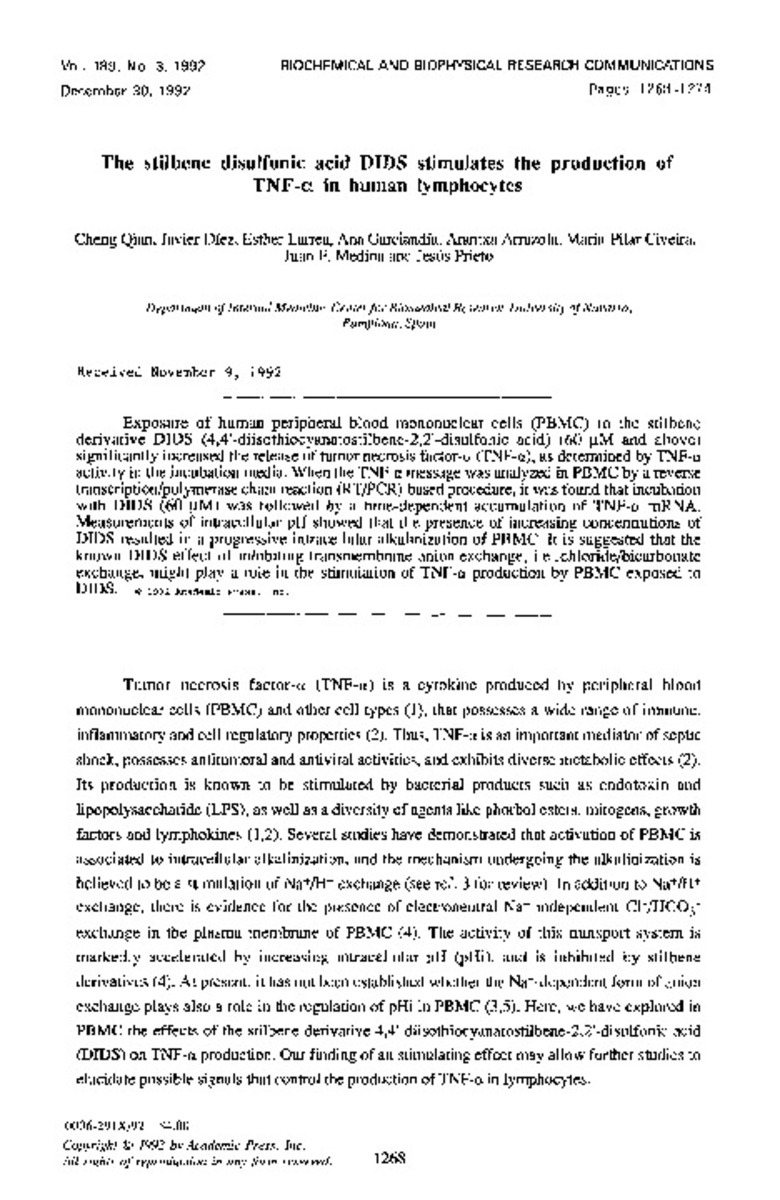The stilbene disulfonic acid DIDS stimulates the production of TNF-alpha in human lymphocytes
Palabras clave :
4-Acetamido-4'-isothiocyanatostilbene-2,2'-disulfonic Acid/analogs & derivatives
Lymphocytes/drug effects
Tumor Necrosis Factor-alpha/biosynthesis
Fecha de publicación :
1992
Cita:
Qian C, Diez J, Larrea E, Garciandia A, Arrazola A, Civeira MP, et al. The stilbene disulfonic acid DIDS stimulates the production of TNF-alpha in human lymphocytes. Biochem Biophys Res Commun 1992 Dec 30;189(3):1268-1274.
Aparece en las colecciones:
Estadísticas e impacto
0 citas en

0 citas en

Los ítems de Dadun están protegidos por copyright, con todos los derechos reservados, a menos que se indique lo contrario.










